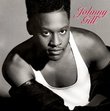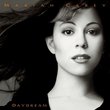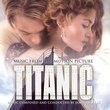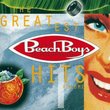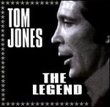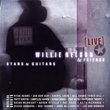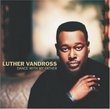| All Artists: Johnny Horton Title: Spectacular Johnny Horton Members Wishing: 2 Total Copies: 0 Label: Sony Release Date: 7/4/2000 Album Type: Original recording remastered Genres: Country, Pop, Rock Styles: Roadhouse Country, Classic Country, Oldies Number of Discs: 1 SwapaCD Credits: 1 UPCs: 074646105429, 5099749871021, 9399700077667 |
Search - Johnny Horton :: Spectacular Johnny Horton
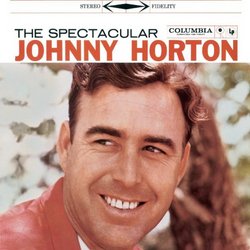 | Johnny Horton Spectacular Johnny Horton Genres: Country, Pop, Rock
The Spectacular Johnny Horton is spectacular indeed, a state-of-the-art survey of the many sides of the Nashville Sound circa 1960. It includes the warm, swooning ballads that are synonymous with the style (a cover of "Los... more » |
Larger Image |
CD DetailsSynopsis
Amazon.com The Spectacular Johnny Horton is spectacular indeed, a state-of-the-art survey of the many sides of the Nashville Sound circa 1960. It includes the warm, swooning ballads that are synonymous with the style (a cover of "Lost Highway" is particularly impressive), but it also features prototype folk-rock saga songs (including "The Battle of New Orleans" and "When It's Springtime in Alaska," each a chart-topping country hit), studio-amped rockabilly (Horton's own "The First Train Headin' South"), and even post-Elvis teen pop (a bonus cut of another Top 10 hit, "All Grown Up"). There are love songs and cheatin' songs here, ramblin' blues and murder ballads, all of it via an A-team studio lineup and Horton's versatile, energetic vocals. Those who think the Nashville Sound was merely Jim Reeves crooning to his horse in "The Blizzard" are about to get bucked from the saddle. --David Cantwell Similarly Requested CDs
|
CD ReviewsVarietous last LP from talented country/honky-tonk singer hyperbolium | Earth, USA | 11/25/2000 (4 out of 5 stars) "Horton's last LP before his untimely car-crash death in 1960 is a highly varied effort that includes his most successful folkloric hit single, a handful of convincing upbeat rockabillies, impressive Nashville-sound ballads and a few novelties and odds-and-ends.Horton's early career on Mercury and his tenure on the Louisiana Hayride (where he met and was briefly mentored by Hank Williams) was a prelude to his early honky-tonk success on Columbia. His 1956 release, "Honky Tonk Man," showed off his instincts for sailing the currents of popular music, moving to an edgier rockabilly sound. A few fallow years followed, at which point the burgeoning folk-revival scene, and a well-selected Jimmy Driftwood cover, gave Horton a second lease on the hit parade. "The Battle of New Orleans" is a superb vehicle for Horton's slightly rowdy delivery (something like a controlled Billy Lee Riley), adding a humorous twist that made it a crossover smash. A fantasy rewrite from the British perspective, in which the rebel forces retreat, is included as a bonus track. The popularity of narrative Americana sagas (which also included the gunfighter/cowboy revival spearheaded by Marty Robbins) also provided Horton with the hit "When It's Springtime in Alaska (It's Forty Below)," and the banjo-led story-songs "Joe's Beena-Gittin' There" and the Klondike-themed "Sam Magee."But given that this was 1959, there were several other trends for Horton to capitalize on. In addition to the story songs, he included several tunes that meshed his country/rockabilly roots (perhaps in acknowledgment of the burgeoning rock 'n' roll market) with elements of the upcoming Nashville Sound. The un-PC "Cherokee Boogie," features a rockabilly beat and Horton's energetic vocals coupled with harmony background singers and somewhat over-produced hand-claps. Horton's own "The First Train Headed South" and a cover of Hank Snow's "The Golden Rocket" each feature train rhythms (the former courtesy of a driving rhythm guitar, the latter via some sweet brush-on-snare playing) that bring the clacking of steel wheels to your hi-fi.Horton also includes several worthwhile ballads, including the romantic "Whispering Pines," a bluesy cover of "Lost Highway" that might have been stronger (though not as then-contemporary) without the highly-produced choral background vocals. Horton's own "All for the Love of a Girl," seems a bit saccharine by now, but it's been a popular tune to cover, with versions by Marty Robbins, Jim & Jesse and Robert Gordon recorded over the years.This may not be as revolutionary (despite the subject matter!) as Horton's earlier honky-tonk sides, but it shows off a spectacularly talented performer who finds interesting things to sing across a wide-range of country-related styles. As an upgrade to the original release, the crisp mastering is a plus, and the bonus tracks worthwhile mostly for the rewrite of the hit single." Pure heart singing Vicki L. Sneed | 07/08/2000 (4 out of 5 stars) "no need to ask some one else what is being said or why.you feel every song or at least under stand what his music meet to him and his fans." GREAT Vicki L. Sneed | INDIANAPOLIS,IN. | 06/08/2007 (5 out of 5 stars) "I LOVE THE OLDER SONGS THAT I GREW UP WITH.I`M 62 YEARS OLD."
|

 Track Listings (15) - Disc #1
Track Listings (15) - Disc #1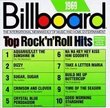
![The Jackson 5 - The Greatest Hits [1971]](https://nationalbookswap.com/cd//m/00/0000/10000.jpg)

